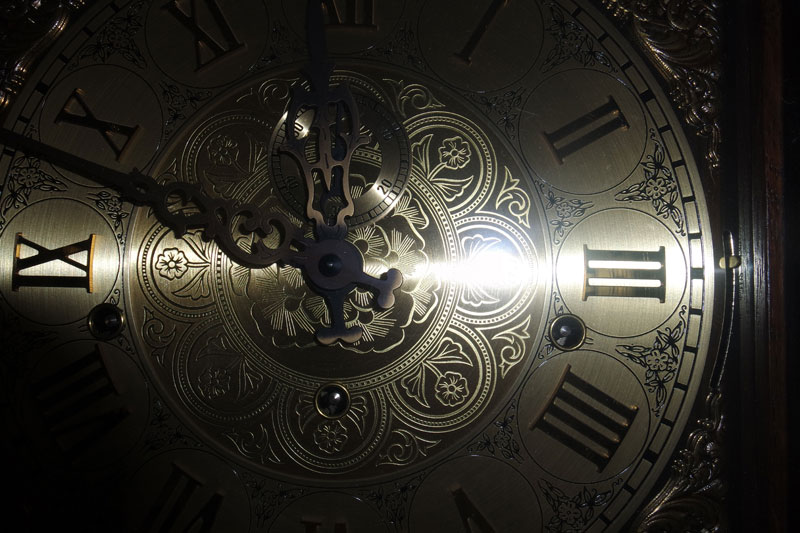I am not a fervently political person, in that you likely won’t be reading a vast array of articles here on my political opinions — though, as I get older I may have to start writing more often about “the good ol’ days” and those darn kids on my lawn. I’m not at that point in my life now (not YET), but I did want to take a moment and share some information about our upcoming election this year.
Please note: While this is an article specifically about a California proposition, and is therefore only immediately relevant to voting citizens of this state, the time may come when it is something that voters in other states will be considering, as well… so it may worth your while!
Please note this note, too: It may just seem like a wall of text below (and it is), so though I have attempted to be economical with my word count, if you would like the super-succinct version, simply look to the title of this post 🙂
What is CA Prop. 7?
So, today, I’m posting to briefly discuss California Proposition 7, which is on the ballot for voters to address in the upcoming midterm election this November 6. In 1949, a proposition was passed to establish Daylight Saving Time (DST), the annual change in time during the summer months. This year’s Prop 7 simply repeals that old bill and alters the language in our state Constitution to allow for the establishment of a permanent time. Prop 7 does NOT automatically create permanent daylight saving time — to do so would further require the approval of California legislature by a 2/3 majority vote and then a final approval by the Federal government. California Prop. 7 simply paves the way for the state to establish a year-round time, whether standard time or daylight saving time (with additional federal approval) rather than our current semiannual adjustment.
California’s Prop. 7, above all else, allows for a viable conversation on the subject of how we determine our state’s time.
Now, I am fully aware that the most pressing issue of our day isn’t whether or not we change our clocks twice a year. I do believe that if a citizen cares about a matter, big or small, it is good for society as a whole for them to peacefully and intelligently share that. So, this is simply my little way of bringing light to the subject of DST (no pun intended… but that’s too bad, because my fiancée loves puns). In this post I will address the potential Economic and Social Safety issues at hand in the time-change conversation, but I think the beating heart of the issue of time-change is a Quality of Life one.
But we’ll get to that 🙂
The pros and cons of CA Prop. 7
The first adoption of daylight saving time as national policy happened in World War 1, as Germany/Austria-Hungary established an effort to reduce the country-wide use of coal… conserving it for military use. Since then it has been adopted by many, but not most, countries. Today, some countries in the world have themselves on a permanent daylight saving time. Even within our own country, two states (Arizona and Hawaii) do not make use of DST, and during the energy crisis of the 1970’s, President Nixon ordered the entire United States onto DST for 15 months.
While I have known nothing else but the semi-annual switching of time during my lifetime (and as a life-long Californian), the issue of time-changing is obviously not as much of a “given” as it may seem to some. Hopefully, in a few key points below, I can help further illuminate things for you (pun intended on that one!).
Does Daylight Saving Time save money?
While the concept may have originally spread in an effort to conserve the energy resource of coal, DST may no longer have the same impact in current society. In 2006, Indiana established a state-wide implementation of DST (only a few counties had used it prior), and it offered the opportunity for a natural experiment of modern data. According to a study which analyzed the residential energy demand, Indiana’s change to DST actually coincided with an increase in the state’s energy use from 1%-4%. This study also pointed to simulations which deem that DST often offers a wash on energy savings, at best — the need for less artificial lighting in the evening is countered by extra heating/cooling costs earlier in the day.
Some argue that the extra daylight hours provided by the time change offer the opportunity for consumers to remain outdoors longer to shop. A study conducted by JPMorgan Chase compared the spending habits between the population of Los Angeles, CA and Phoenix, AZ (where there is no DST), and found that while the time change in spring did have a positive impact on spending amount in L.A., the time change in fall had a greater negative impact. This means that in L.A., the impact of DST on local commerce ends up negative overall. The study is thorough in mentioning that this comparison with Phoenix was also made between San Diego, CA and Denver, CO. Though the impact in Denver was even worse than in L.A., San Diego actually showed an overall positive consumer change in the light of DST (oof, so many initials in this post!). So, while this study does not infer that the impact of DST is always bad… it doesn’t support the idea that DST is automatically good for pushing money through the economy, either.
Will this put California out of sync?
I work remotely with a company based on the U.S. east coast. When my co-workers are rising for their work day, I am still heartily dozing. If California were to establish a year-round time, this means that for several months out of the year, instead of the current 3-hour time difference between myself and the other side of the country, there would be a 4-hour difference. Similarly, California would be out of sync with states in its own time zone for parts of the year. I understand that this is a valid concern for some, and I have no data to argue against it. However, I will turn to the experience of non-time-change states like Arizona and Hawaii and wonder whether or not interstate business is somehow less possible there because of the semiannual time disparity? Perhaps, though a valid concern, this is not as terrible an issue as it may seem.
Following this, there may actually be a future ahead in which this is a non-issue altogether. Two states and several U.S. territories already do not follow DST, and just this past March, Florida passed a bill which would establish permanent DST for itself. To do so, Florida will still need approval of Congress, but the resolution easily passed the state legislature with a bipartisan majority. Just a week after that, Florida senator Marco Rubio introduced The Sunshine Protection Act to the U.S. Senate, which would establish permanent daylight saving time nationwide.
Similarly, in Europe, where the current use of DST first spawned, there is a growing movement to do away with DST. Last month the European Commission released a proposal to end daylight saving time, encouraged by a survey of 4.6 million Europeans which landed at 84% in public approval of ending DST. The funny thing about this push for change in Europe is that it is in part spearheaded by Finland, one of the northernmost countries in the world; their reasoning? Health issues, mostly… but more on that further below.
Is there a safety concern?
Opponents to the establishment of permanent DST offer that this may result in greater traffic accidents due to an increase in time spent driving in the dark, and that it may pose a safety risk to children as they make their way to school in darkness. I have found no studies or data to directly support these hesitations, and society seems to remain intact in areas where DST is a permanent staple, but of course we want to hear any logical concerns. As a reminder, CA Prop 7 does not establish permanent DST, which these concerns I’ve read are specifically aimed at, and I am more interested here in pushing to obliterate the actual act of semiannual time change, itself, not dictating whether we should permanently be on DST vs. standard time. To report honestly, though, when daylight saving time in the U.S. was lengthened in 2007, one study reveals an overall decrease in robberies — which makes sense, given the change in darkness during normal waking hours. Whether or not this information will be useful in arguing DST vs. standard time, I couldn’t say, but I want to be sure I’m presenting this with transparency.
Though I found no information directly regarding traffic accidents and time-change, I did come across something that addresses issues with the change in sleep. A study which looked at traffic accidents in Canada 1 week before, immediately after, and 1 week after the time change noted that the loss of sleep during the spring change showed a correlation with greater traffic accidents for at least the two weeks after DST was enacted. Interestingly, during the fall time change (in which we gain an extra hour of sleep), immediately after the return to standard time there was a decrease in traffic accidents (logically understandable), but then a week after the extra hour had been obtained, traffic accidents actually increased! That final note may simply be the result of an extraneous anomaly, but what this study does support is that DST can have a serious impact on citizens’ sleep… and that leads me into my next point.
Health concerns related to the time change
For me, this is the heart of the issue. And I don’t use that word coincidentally, either, as several studies have shown that the time change likely incites heart attacks in at-risk individuals. While a general lack of enough sleep, which is common after the spring-forward transition to DST, is consistently reported as detrimental to one’s health, the health issues related to our time-changing ways are all related to disrupting our actual internal rhythms twice per year. Whether it’s an increase in suicides, an increase in miscarriages for in-vitro fertilized women, or an increase in stroke risk for the first couple of days after time change, there is a strong case to be made that regularly shocking our sleep cycle system into a state of confusion twice a year is a health risk.
Now, please note, I am not suddenly wringing my hands in fear of the evils of time change. These health issues, while fully substantiated by research, aren’t going to be the downfall of society. As it is, California itself has changed time twice per year for over 50 years, and I’m not living in a wasteland wilderness with a former population decimated by time-change death. If we as a society, though, have this option to take even a small action to improve overall health, I hope that is something we can at the very least discuss.
And heck, even if you don’t care about any of that, don’t discount the emotional peace and joy of never having to go through the physical and mental fogginess of losing a mandated hour of sleep ever again 🙂
——————————————
So, thus concludes my article. I highly urge all California voters to vote Yes on Proposition 7 this coming Tuesday (if I haven’t already missed you early/by-mail voters), and though I aspired here to present balanced and fair information, I also hope that I have presented my case well enough to perhaps persuade any who were on the fence!

